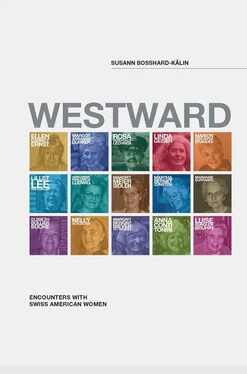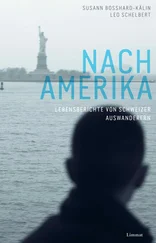Leo Schelbert - Westward
Здесь есть возможность читать онлайн «Leo Schelbert - Westward» — ознакомительный отрывок электронной книги совершенно бесплатно, а после прочтения отрывка купить полную версию. В некоторых случаях можно слушать аудио, скачать через торрент в формате fb2 и присутствует краткое содержание. Жанр: unrecognised, на английском языке. Описание произведения, (предисловие) а так же отзывы посетителей доступны на портале библиотеки ЛибКат.
- Название:Westward
- Автор:
- Жанр:
- Год:неизвестен
- ISBN:нет данных
- Рейтинг книги:3 / 5. Голосов: 1
-
Избранное:Добавить в избранное
- Отзывы:
-
Ваша оценка:
- 60
- 1
- 2
- 3
- 4
- 5
Westward: краткое содержание, описание и аннотация
Предлагаем к чтению аннотацию, описание, краткое содержание или предисловие (зависит от того, что написал сам автор книги «Westward»). Если вы не нашли необходимую информацию о книге — напишите в комментариях, мы постараемся отыскать её.
Westward — читать онлайн ознакомительный отрывок
Ниже представлен текст книги, разбитый по страницам. Система сохранения места последней прочитанной страницы, позволяет с удобством читать онлайн бесплатно книгу «Westward», без необходимости каждый раз заново искать на чём Вы остановились. Поставьте закладку, и сможете в любой момент перейти на страницу, на которой закончили чтение.
Интервал:
Закладка:
During WWII their English teacher encouraged her students to go to the Red Cross Club in the Hotel Eden on the Bahnhofstrasse. “There American GIs on furlough in Switzerland would speak English with us, dance with us. I didn’t need to hear this twice. These evenings were fascinating. I met a lot of interesting people. To meet people who would freely discuss topics we were not allowed to broach at home, that was an incredible experience. At the end of my Gymnasium years the war had ended; it was also the end of those evenings – but my fondness for Americans remained.”
Ellen’s parents did not want to hear about her going to university. “And I had no idea what I could do after graduation. My father took me into his photo shop, which he had opened at the Badenerstrasse in Zurich’s 3 rddistrict and in which he had set up a portrait studio. But taking portraits was not my cup of tea. Nevertheless, one day he sent me on a picture hunt with an empty roll of Kodak film. I was to take pictures of people in the Landesmuseum (Swiss National Museum).”
There she met two GIs, a black man from New York and a white one from Philadelphia, they were super models for her. “And once again I was able to speak English. I offered the two a guided tour through the museum. Howard from Philadelphia – who had seen action in Northern Africa and Italy – insisted on getting my address. And soon we wrote letters back and forth and talked about Chinese philosophy. I found this very adventurous.”
One day in 1947, a few months after his discharge, Howard appeared on the doorsteps of her family’s apartment in the Badenerstrasse. “Self-confident, he announced that we should get married.” Howard was an American Quaker who, enraged about Hitler, had volunteered for the Army; he stayed in Switzerland for three months to get to know Ellen. “And he persisted in wanting to marry me. I saw things differently. I felt too young and too inexperienced as I was just 21 and Howard Gillespie was 19 years older. ‘You came here to see how you would like it. Now I will first go and see how I would like America’, was my answer.”
With an immigration visa Ellen Ernst travelled on her own to America in April 1948. “I had asked a saddler to make two large oversea bags – duffle bags – with stable zippers and handles. My father took me by car to Basel. In the train to Amsterdam I met a nice lady who invited me to spend the night with her and her husband, the town-physician of Amsterdam, before continuing my journey toward the Atlantic the next day. In a hotel in Rotterdam, before embarking, I was served something that looked like grubs – shrimp. How would I have known what they were? Still I felt very grown up. I had no fear. And I knew that I would make it, that somehow I would be able to overcome any obstacles.”
Where did she find such courage? “Inside. I was firm and secure in myself; I knew what I was able to do. And quite frankly, my savings of 800 dollars in my pocket also helped!” The crossing on the New Amsterdam was stormy. “But I was never seasick. The doctor who treated me all my life in Switzerland and who subscribed to anthroposophy had advised me: ‘Breathe in when the ship goes up, and breathe out when she goes down.’ It worked.” Ellen shared the cabin with three women. “One came directly from a concentration camp. She did not say much about it, but told me that a priest on the ship made a pass at her and wanted to sleep with her! “When I saw the statue of Liberty in New York, I felt as if I were growing some more inside. I felt liberated. But when we docked in Hoboken, I would have preferred to turn around right away. Everything was so dirty and chaotic in this harbor.”
Howard met his Swiss girlfriend, but he did not come – as she had expected – with a car. They traveled by train to Philadelphia where Howard lived with his parents – in an old part of the city where African Americans who had come up from the South during the war had settled.
“Everything was suddenly so different. Howard’s mother came from one of the first Quaker families of America. Now I was with people who were religious, but not in the way I had experienced in the Swiss Reformed Church. They were not religious in a church going sense. Yet the ways of the Quakers were somehow familiar to me. I understood them in their ‘meetings for worship’ in which they assembled for silent prayer and experienced these assemblies devoid of ceremonies as divine worship. All this impressed me, and especially the fact that many Quakers think and feel very differently – for me this was deeply religious, a religion without complicated dogmas. Yet I never became a Quaker myself.” About herself she says, “Never in my life did I pursue obstinately any firm goal. Everything always moved, flowed. I only had to say yes or no.
“In Chester County, a hilly rural area thirty miles west of Philadelphia, Howard planned to establish a ‘utopian community’ together with conscientious objectors and their families, a community that did not exclude persons of any racial background. We were a large, extended family and created our own rules in the settlement of Tanguy Homesteads. We simply wanted to ‘drop out of the rat race.’“
It was a totally new and fascinating world with professors, librarians, teachers, and nurses and their families. “Interesting people such as Martha Jaeger, the psychologist of the writer Anaïs Nin, lived with us. Exciting. I felt very much at ease. When a five year old girl came to me during my pregnancy and told me how I had made this child and how it would later come out of my belly, I thought that these were truly unusual people!”
The first members of the community lived in an old farmhouse. “Howard and I moved from the beginning into a house of our own; but we had many meals together. Few members of the community owned a car, the women shopped together, and we used vegetables and fruit from our large garden. The men built the houses. I felt at home there. Yet today I know: in reality I do not belong anywhere. I feel at home in the entire world. Wherever I live at the moment, I feel at home, and so also in our settlement.
“Howard and I did get married. And when I became pregnant, they told me: either an abortion or heart surgery. Already at the age of 13 I had heard that I could die because of my heart or my lungs. Therefore I thought that I could die in either case, by giving birth or by having the surgery. I chose what was good for me. I had nothing to lose. Imagine this! And now an old woman is sitting across from you. It is really strange how things happen in life.”
Ellen Carney was told that she was the first pregnant woman in America who underwent heart surgery. “I was seen as a special case in the University Hospital in Philadelphia and I became a media star overnight.” The surgery was successful, but asthma and coughing have been her steady companions until today. “My lungs could not recover; they were too heavily damaged.”
In their utopian community of intellectual leftists Ellen blossomed. “We were different from the average Americans, and I appreciated it. We were looking for a different path, an interior rather than an exterior one, watched each others’ children and functioned as nurses for each other. We were almost self-sufficient, created our own little world.
“In 1949 I gave birth to our son Fred, in 1953 to our daughter Hester. For 30 years I lived in this community, until 1978. These were years that deeply shaped me. Howard worked as an engineer in the large harbor of the US Navy in Philadelphia. We participated in political protest marches to Washington in support of black Americans and protested against the War in Viet Nam.” Ellen did not have a profession “until there was a need for a kindergarten teacher for all the children in our settlement. I thought, I would try it and opened a kindergarten for our community that was also open to children from outside. It was great fun. With the children I did everything that as a child I had not been allowed to do myself. We even burned the Böög of the Zurich Sechseläuten near our creek.” [Following an old custom, old man winter is burned publicly one day in early spring when all the church bells toll the summer hour of 6 p.m.]
Читать дальшеИнтервал:
Закладка:
Похожие книги на «Westward»
Представляем Вашему вниманию похожие книги на «Westward» списком для выбора. Мы отобрали схожую по названию и смыслу литературу в надежде предоставить читателям больше вариантов отыскать новые, интересные, ещё непрочитанные произведения.
Обсуждение, отзывы о книге «Westward» и просто собственные мнения читателей. Оставьте ваши комментарии, напишите, что Вы думаете о произведении, его смысле или главных героях. Укажите что конкретно понравилось, а что нет, и почему Вы так считаете.












